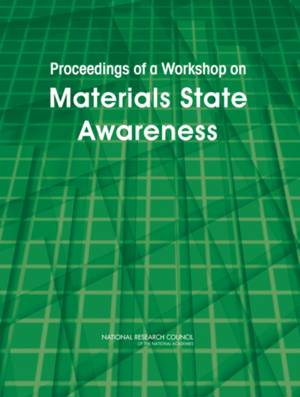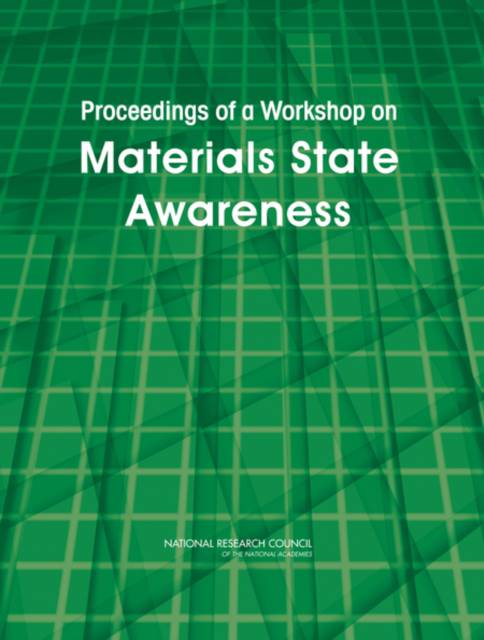
- Afhalen na 1 uur in een winkel met voorraad
- Gratis thuislevering in België vanaf € 30
- Ruim aanbod met 7 miljoen producten
- Afhalen na 1 uur in een winkel met voorraad
- Gratis thuislevering in België vanaf € 30
- Ruim aanbod met 7 miljoen producten
Zoeken
Proceedings of a Workshop on Materials State Awareness
National Research Council, Division on Engineering and Physical Sciences, National Materials Advisory Board
Paperback | Engels
€ 42,95
+ 85 punten
Omschrijving
In order to ensure effective military operations and continued warfighter safety, the functionality and integrity of the equipment used must also be ensured. For the past several years, the Nondestructive Evaluation Branch at the Air Force Research Laboratory (AFRL) has focused actively on the development of embedded sensing technologies for the real-time monitoring of damage states in aircraft, turbine engines, and aerospace structures. These sensing technologies must be developed for use in environments ranging from the normal to the extreme, confronting researchers with the need to understand issues involving reliability, wireless telemetry, and signal processing methods. Additionally, there is a need to develop science and technology that will address the sensing of a material state at the microstructure level, precursor damage at the dislocation level, and fatigue-crack size population. To address these issues, the National Research Council convened a workshop at which speakers gave their personal perspectives on technological approaches to understanding materials state and described potential challenges and advances in technology. This book consists primarily of extended abstracts of the workshop speakers' presentations, conveying the nature and scope of the material presented.
Specificaties
Betrokkenen
- Auteur(s):
- Uitgeverij:
Inhoud
- Aantal bladzijden:
- 76
- Taal:
- Engels
Eigenschappen
- Productcode (EAN):
- 9780309121651
- Verschijningsdatum:
- 30/07/2008
- Uitvoering:
- Paperback
- Formaat:
- Trade paperback (VS)
- Afmetingen:
- 216 mm x 279 mm

Alleen bij Standaard Boekhandel
+ 85 punten op je klantenkaart van Standaard Boekhandel
Beoordelingen
We publiceren alleen reviews die voldoen aan de voorwaarden voor reviews. Bekijk onze voorwaarden voor reviews.












